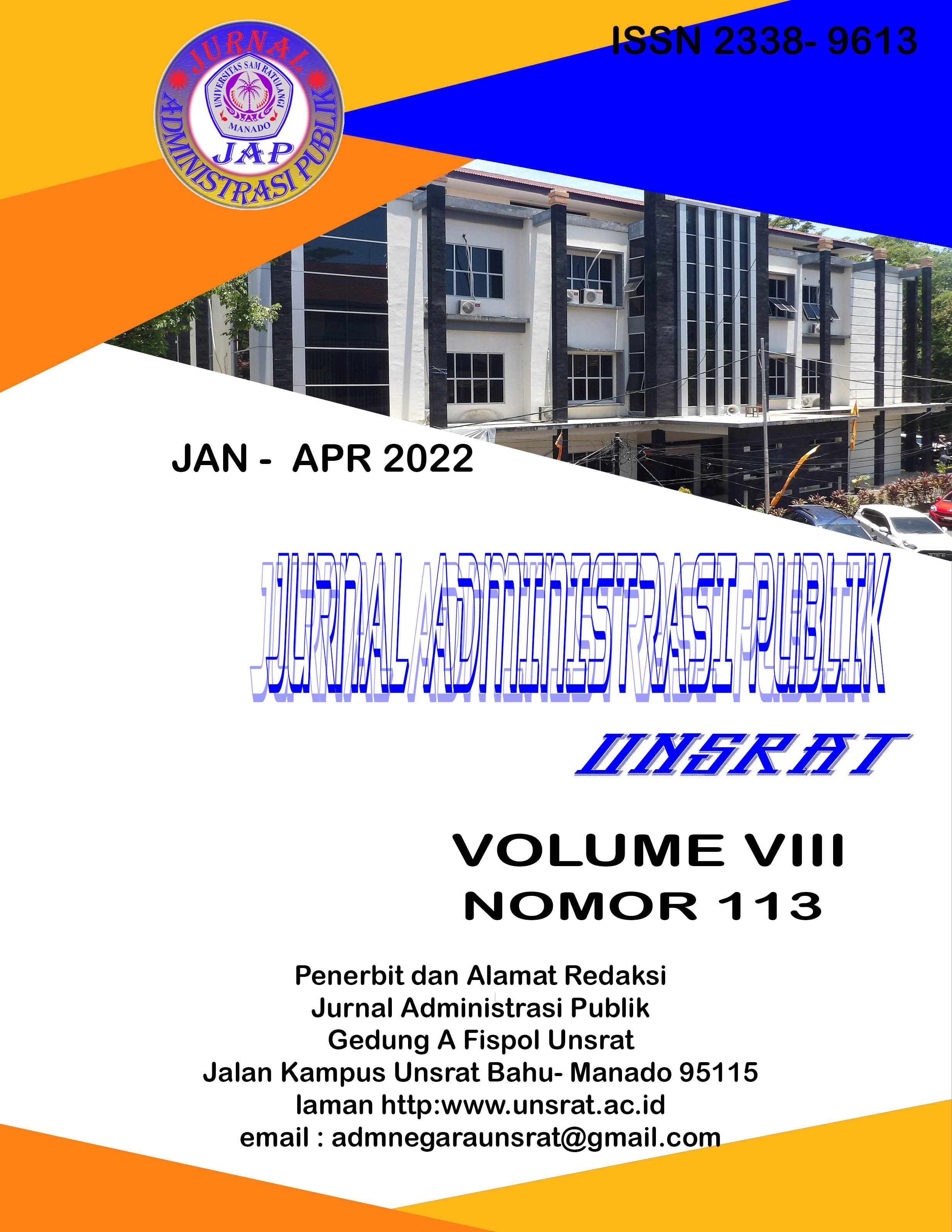IMPLEMENTASI PROGRAM BANTUAN DANA DAN SEMBAKO BAGI MASYARAKAT TERDAMPAK COVID-19 DI DESA KAASAR KECAMATAN KAUDITAN
Abstract
The social assistance program is one of the components of the social security program which is a form ofrealization of the responsibility of the central government or local government which is very concerned
about the condition of the poor and neglected people. In the current pandemic conditions, people really
need attention and assistance from the government to survive. Currently, the government provides social
security to people affected by Covid-19, namely: Direct Cash Assistance-Village Funds, Cash Social
Assistance, Non-Cash Food Assistance, Family Hope Program, Basic Food, and various other assistance.
This study discusses the program of financial assistance and basic necessities. The object of research uses
the policy theory of David C. Korten. This study uses a qualitative descriptive research method because
the descriptive qualitative research method is a research procedure that is focused in depth. Informants in
this study amounted to 13 people consisting of 6 village officials, and 7 people receiving assistance. Data
collection techniques used are observation, interviews, and documentation.
The results showed that the implementation of the funding and basic food assistance program in Kaasar
Village, Kauditan District based on the policy theory of David C. Korten was not appropriate because the
target group elements had not been running well. There are still people who do not meet the criteria for
getting assistance, and there are still delays in the distribution of aid, and not all people are unable to get
assistance.
Keywords: Implementation Program, Fund Assistance and Basic Food
Downloads
Published
2022-01-24
How to Cite
PALIT, D. D., TULUSAN, F., & PALAR, N. (2022). IMPLEMENTASI PROGRAM BANTUAN DANA DAN SEMBAKO BAGI MASYARAKAT TERDAMPAK COVID-19 DI DESA KAASAR KECAMATAN KAUDITAN. JURNAL ADMINISTRASI PUBLIK, 8(113). Retrieved from https://ejournal.unsrat.ac.id/v3/index.php/JAP/article/view/38157
Issue
Section
artikel








